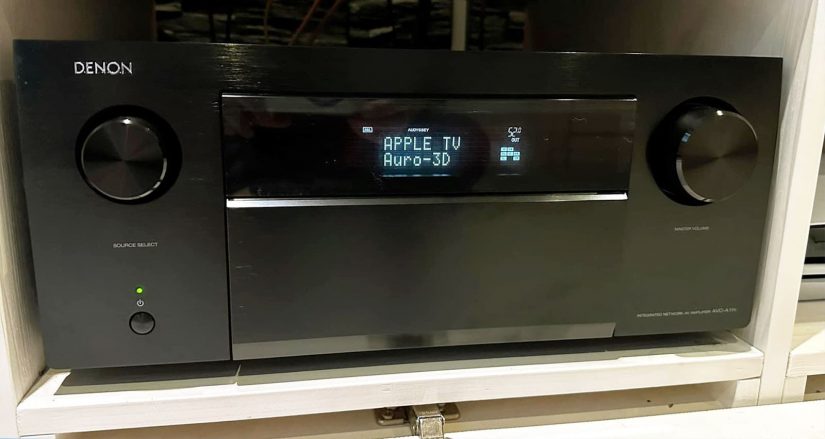Denon vs. Onkyo AV Receivers – Crafting the Perfect Sound Experience at Home
Nothing is surprising in the rivalry between Denon vs Onkyo, as both companies were founded in the middle of the last century. The Japanese are at the origins of development, and both brands keep up with the times, improving the experience and preserving traditions to please their fans with quality electronics and affordable price range.
But who is the winner in the battle of Denon vs Onkyo receivers? That’s for you to decide for yourself after reading my article. Models from both these manufacturers are very popular and have excellent functionality and features that can diversify your home movie-watching experience. So, let’s take a closer look at the potential of these manufacturers, noting the strengths and not forgetting the weaknesses.
Historical background
In 1910, American entrepreneur Frederick Whitney Horne began a fruitful collaboration with Japanese engineers to form Nippon Chikuonki Shoukai. The company started by producing gramophones and music records, which became famous overnight with radio stations around the world. After 20 years, the company created the Denon brand, combining the first syllables of Denki and Onkyo, and continues its journey of technology and innovation in the world of music entertainment, constantly expanding its scope. Creating radios, musical instruments, stereo kits, and hi-fi components, Denon has shown incredible progress in digital audio and released its first line of AV receivers (over 30 years ago). Today, Denon is one of the market leaders in various audio equipment. As history has shown, Denon’s mission has always been to create products that combine the highest standards of sound quality and reliability.
At the same time, in 1946, and also in Japan, immensely devoted to music, the Japanese Takeshi Goda began the production of vinyl turntables and tonearms and founded the company Osaka Denki Onkyo, which later changed its name to Onkyo Co., Ltd. For more than seven decades, the company has specialized in the production and sale of audio equipment and home theater systems in the mid-to low-cost segment – it was the first to introduce an AVR (model TX-SR605) with support for Dolby TrueHD and DTS-HD Master Audio formats, which successfully won the love of most consumers. In 2015, Onkyo merged with Pioneer Corporation, also a popular manufacturer of high-quality audio equipment, and thanks to the accumulated knowledge, constant development, and experimentation, Onkyo receivers today have the right to compete with other market leaders.
Sound quality and performance
In comparison of Onkyo and Denon, it isn’t easy to find any striking differences between these receivers because, in many respects, your impressions will depend on additional equipment, namely sound source, acoustic systems, characteristics of the room, etc. However, based on my personal experience and feedback from other users, I can say that the Denon sound impresses me more: I am delighted with the warmth, detail, and richness of the sound. In particular, both Denon’s and Onkyo’s Auto Sound Calibration systems provide this overall ambiance to the sound of each setup.
The Audyssey MultiEQ system (Denon), for example, is good at analyzing and correcting the acoustic characteristics of a room, making it possible to hear intricate musical details in a variety of musical genres. Onkyo’s calibration system is simpler, but it also allows you to make adjustments to the sound space and, because of its capabilities, improves playback quality. The intonation of these receivers is more dynamic and sharper, and if you are a fan of rock, electronic, or pop music, you will be able to feel the energy and enjoy the accuracy of the sound.
Support for advanced audio formats such as Dolby Atmos and DTS:X make both parties excellent choices for creating a theater in your home. Both Denon and Onkyo can provide a balanced and enveloping soundstage that delivers three-dimensional, object-oriented sound.
Many experts (and I agree with them) also note that the Denon receivers are more reliable than the Onkyo receivers, which is due to the more expensive components of these machines.
Features and сonnectivity
Choosing between Denon and Onkio is really confusing because both brands offer a wide range of features: a variety of input and output ports for connecting different types of sources, including multiple HDMI inputs and outputs that output your TV’s picture up to 4K or 8K; support for various extended dynamic range (HDR) formats such as Dolby Vision, HDR10, and HLG; built-in HEOS Built-in multi-room system technologies HEOS Built-in in Denon and Chromecast (Onkyo) that provide fairly high-quality audio streaming, including services such as Spotify, Pandora, Google Play Music, Tidal, and others.
Of course, most Denon and Onkyo models have Wi-Fi/Bluetooth connectivity and built-in support for voice assistants (Alexa, Google Assistant), allowing you to control your home theater system by voice. All models of budget and mid-range AV receivers from these manufacturers have extensive functionality and can satisfy all preferences and tastes.
In summary, we can say that Denon models are receivers designed to provide a cinematic home theater experience. At the same time, Onkyo is a more versatile device, adaptable to various home audio and video needs.

